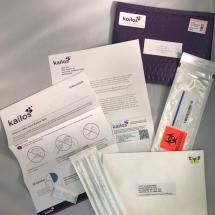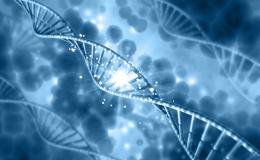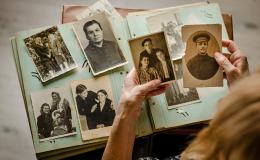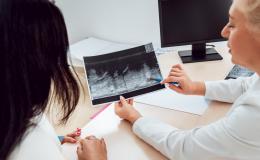Hereditary Cancer Screening Can Be an Invaluable Tool for You and Your Physician
Everyone’s genes have natural variations known as mutations. Most of these variations are not harmful and are responsible for traits like height and eye color. However, there are some variations, called “pathogenic” mutations, that are known to increase a person’s risk of developing disease. These pathogenic mutations, because they are located in a person’s genes, can then be passed from parent to child, creating heritable forms of disease, such as cancer.

Brenda1, a 41-year-old woman, provides an illuminating case study of heritable cancer.2 Brenda was diagnosed at age 33 with a form of breast cancer known as invasive lobular carcinoma. Brenda underwent a total mastectomy of both breasts after her diagnosis, completed a course of chemotherapy and was placed on continuous antihormonal therapy. At the time of diagnosis, Brenda was tested for mutations in the BRCA1 and BRCA2 genes, two well-known genes that are involved in some cases of breast cancer. Brenda’s test results revealed a pathogenic mutation in one of her two copies of her BRCA2 gene. Brenda’s surviving parent, her father, was tested and found to have the same mutation as Brenda in one copy of his BRCA2 gene, establishing that Brenda’s mutation was passed down to her from her father. Brenda’s mother could not be tested for the mutation as she had passed away at age 58 from a different form of cancer.
Interestingly, at age 39, Brenda was also diagnosed with a type of skin cancer called squamous cell carcinoma. This cancer was found in the nail bed of her fourth finger on her right hand, and the diagnosis led to the partial amputation of that finger. Subsequent genetic counseling revealed that Brenda’s mother had a very strong family history of a variety of cancers. In fact, by the time Brenda’s mother had passed away at age 58, she had been diagnosed with 3 different types of cancer at ages 26, 29, and 50 with a recurrence of one cancer at the age of 53. Importantly, none of these cancers were breast cancer.
Brenda’s clinicians recommended she undergo genetic screening of the 29 genes that were, at the time, known or suspected to increase an individual’s hereditary cancer risk. The additional screening confirmed the BRCA2 mutation found during her previous genetic testing and additionally found a “likely pathogenic” mutation in the CDKN2A gene, a gene associated with an increased risk of developing melanoma and pancreatic cancers. BRCA2 mutations have also been associated with other cancers in addition to breast, such as pancreatic cancer and melanoma. Since the patient was found to have two different mutations linked to an increased risk of both pancreatic cancer and melanoma, Brenda’s clinicians initiated aggressive screening measures for both types of cancers, including endoscopic ultrasounds every six months to screen for pancreatic cancer and skin screenings every six months for detection of melanoma.
The more thorough genetic screening of Brenda’s genes after her initial BRCA1 and BRCA2 testing allowed her physicians to customize preventative screening measures specific for her increased melanoma and pancreatic cancer risk. In the years since Brenda’s case study, researchers have found additional genes that are associated with an increased risk of developing different types of hereditary cancer. The Kailos Genetics ExpedioTM hereditary cancer screening service utilizes proprietary TargetRichTM technology to analyze 33 different genes, including BRCA1, BRCA2 and CDKN2A, associated with an increased risk of cancer. Importantly, the presence of one of these mutations does not guarantee that a person will develop cancer, but it is an important risk factor that your physician can consider when determining your overall cancer risk. Likewise, the absence of a mutation in the hereditary cancer screen does not guarantee that you will not develop cancer and instead informs your physician regarding your overall risk.
Your genes are just one aspect of your total cancer risk. Our Expedio hereditary cancer screening service allows you and your physician to focus on your specific gene mutations to determine a preventative screening plan aimed at maintaining your health and well-being.
We extract your DNA from an oral swab collection kit that can be performed yourself at home, making sample collection simple, easy and painless. Results are delivered to you and your physician in about two weeks. At Kailos Genetics, we understand the power of personalized healthcare.





